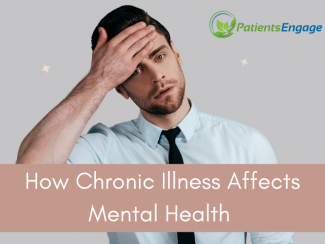
Let us acknowledge that any illness or condition affects the overall wellbeing of the person.Listen to voices of persons with chronic illnesses to understand how the condition affects their mental health. #WorldMentalHealthDay
We speak of mental health issues in isolation; we do not acknowledge physical health and diagnosis of a chronic condition as a factor that influences mental wellbeing.
Lets take a few examples of lived experiences. Click on the subheading for the details.
Lymphoma Survivor
Chemotherapy wasn't easy. It was nausea, dizziness and lack of appetite all the while. Every day I kept counting the days. Life which was so beautiful a few days ago had become so difficult all of sudden. My parents were in bad shape seeing me like this. I had to put up a cheerful face when they were around. My big support was my wife. She handled my 'lows' with great understanding. I had doubts about my survival. Some days were really dark.
Read more: Newly Married and Diagnosed with Lymphoma
Brain Tumour
I still get headaches when I need to focus a lot. That is one major reason I cut down on my stress. Mood wise I had severe anger issues. My temper would go off from 0 to 100 in 0.1 second and not with everyone. I could feel those anger cells actually hitting my head. It did not happen anywhere else only inside the home. Sometimes it's just heartbreak/ heaviness and you're crying. It does not happen all together at once but at random times.
Read more: My First Priority After My Brain Tumour
Parkinson's Disease
It has been difficult, definitely. At first, I tried to be positive, telling myself that I will handle it and lead as fulfilling a life as possible. But as years passed, fear for the future, uncertainty and concerns about the present condition increased exponentially. PD brings with it a whole range of additional complications and there are days when despair takes over. At that time, sermons and epithets and quotable quotes do not offer any solution. Neither does well-meaning but useless advice such as “see the light at the end of the tunnel” mean anything.
Read more: Inspired by Hurdle Racers to deal with Young Onset Parkinson's Disease
Type 1 Diabetes
All my life, I have felt like I haven’t been doing enough about my illness. Illness is framed as a battle in everyday narratives, something that you must fight and conquer every day. Self-blame comes free with diagnoses of a long-term illness, like the world’s worst ‘buy one get one free’ offer. It was not until I was eighteen or nineteen that I realised just how harsh I was being to myself. If I was sick and missed a day of school, for instance, I would beat myself up with guilt over it: was I sure that I had done everything I could to power through what was going on in my body? Was I even sick at all? Was all of this in my head? Was I not trying hard enough? Why wasn’t I victorious?
Read more: Diabetes is a Tricky Disease With a Massive Emotional Burden
Fibromyalgia
This was perhaps the darkest phase of my life. I was overwhelmed, broken, desperate and lonely in this fight. Chronic illness, is a lonely road - even when one might have the best support system; the depth of what one goes through can only be understood by those suffering.
Read more: Fibromyalgia has been a catalyst to understand what I truly value
Sometimes the acceptance of the condition and the support of the family helps. But often the social norms around talking of mental health matters complicates and strains relationships. There is a significant emotional cost to the caregiver and family.
Let us acknowledge that any illness or condition affects the overall wellbeing of the person. It also affects the mental health of the person. Given the rising burden of chronic conditions, let us not ignore this aspect.






